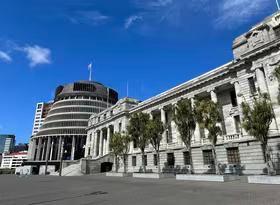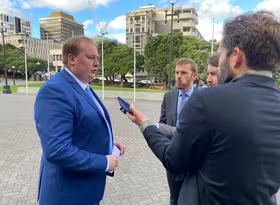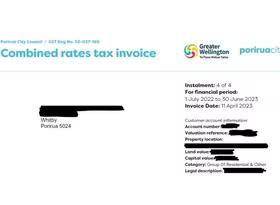Can we improve the election process to get better policy?
“It has been said that democracy is the worst form of government except all the others that have been tried.”
Sir Winston Churchill
There is no question that open economy democracies have been associated with strong wealth gains for their citizens. Though in the spirit of Sir Winston Churchill’s quote it can seem a bit of a mystery how democracies actually deliver better outcomes. Democratic processes, with their committees, political intrigue, and fluid coalitions, are not the approaches that one is likely to find recommended in management texts. Democracies appear to somehow deliver better outcomes for its citizens despite their governments.
Ultimately it seems that the better outcomes of democracy do not reflect their superior machinations of government, but simply that they represent a closer alignment of interests between the government and the citizenry than other forms of government. Getting into power and staying in power in a democracy requires at least some recognition of the interests of voters. The net result is that, although far from perfect, democracies are more likely to produce laws and government actions that represent the interests of a wider proportion of the population than autocracies that only need to meet the interests of a narrow clique.
One of the luxuries of living in a stable democracy like New Zealand is that it allows politics to be dominated by a sense of complacency; we know that the life of individual governments is limited and that its replacement will not really make a big difference. Every now and then a new government will introduce a policy that will make some difference to us as individuals, but more often our attitude to a government probably more reflects their image rather than any substantial impact that they have on our lives.
Despite this general level of comfort with New Zealand’s political system there is always room for improvement. My general concern is that the quality of policies should be as high as possible. By this I mean that policies introduced are most effective in delivering the intended outcomes and that unintended side-effects are minimised. I think it is totally appropriate that policies reflect the philosophy of the elected government and the interests of the electorate, but it annoys me when policy does not look like it will be as effective as it could be, or delivers outcomes in a costly way.
In this regard one of my key concerns about policy development is the lack of technical support available to opposition parties. It is the nature of change that the largest swings in policy occur with a change of government. Oppositions are less bound with the existing policy suite and are focussed on the failings of the current framework. Yet the opposition has limited access to the nation’s key policy advice resource, the civil service.
Although much of the civil service’s activity is involved with implementing government policy, they also have an important role in providing the government with advice on the suitable design of policy. The question that I pose is; should some more public resource be made available to provide policy advice to potential members of future governments?
The nature of the election process is that political parties are increasingly expected to be explicit about the policies they intend to implement (or advocate if a minority party to a coalition). Understandably the media, opposition and the electorate scrutinise both the detail of the promises and, if elected, the extent that the government delivers on their election promises. The Mixed Member Proportional electoral system that New Zealand has encourages the election of a parliament and government that reflects the demographic mix of the electorate. The members of parliament that we elect are our representatives who we delegate responsibility to represent our interest in government processes. They have responsibility, but they do not necessarily have the expertise to design and run all the facets of government. The details of government are undertaken by the experts in the civil service, under the guidance and oversight of the elected representatives.
That all works well once a government is elected (at least in theory, the civil service cannot be absolved from contributing to poor policies from time to time) but it is more difficult to fix poorly designed policy if it has been set in stone by the election process. Giving opposition parties greater access to policy advice would hopefully lift the standard of policies that can be scrutinised through the election process.
Another associated weakness with our electoral process comes from the bundling of party election promises. When one votes for a political party one is essentially supporting all of their policies with an equal weighting or, perhaps more accurately, with the same weighting of the political party. A number of years ago the Labour Party introduced the innovation of a pledge card, representing the seven policy planks that the party pledged to deliver if elected. Part of me applauded the explicit commitment that the pledge card represented, but there was also the reservation that people voting Labour were unlikely to universally support all seven of the pledged policies. Essentially, even if you generally support a political party, you are always accepting a non-negotiable bundle of policies, which is likely to include some policies that you really do not support.
Now some policy compromise is unavoidable; if you want the government to spend more in a certain area, then this requires the government to either spend less elsewhere or to tax more (if not today at least at some point in the future). But sometimes policies are adopted not because there is an intrinsic strong demand for the policy, but because of mistakes in second guessing what their supporters really want. There is considerable evidence that even well intentioned representatives can make mistakes in assessing what their constituency truly values.
Political parties use polling to minimise these types of mistakes. But maybe more could be made of the electoral process. A number of years ago Gareth Morgan made a suggestion which I think has considerable merit. In addition to binding electorate and party votes, voters should be also given the opportunity to cast non-binding (ie popularity) votes on preferences on different party policies. Thus one might give your party vote to Party X, and therefore might also support the majority of their policies, but the policy vote facility would give you the ability to make it clear that you prefer Party Y’s education policies and Party Z’s environmental policies. Presuming that Party X obtains sufficient votes to form (lead) the new government, this policy vote information, while not binding the new government to do anything, would provide them with extra information about the popularity of its policy platform. If a certain area is less popular, it would perhaps encourage the new government to review its policies in this area more carefully.




